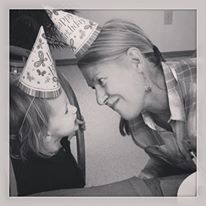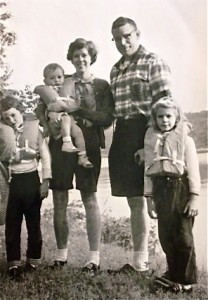“I’m nice, but a little bit mean today,” my granddaughter said. In her own way, she was saying that she felt angry. Laney is two-and-a-half.
 “It’s okay to feel mad,” I said, stroking her bangs to one side. I reminded her that I felt mad at our dog for not coming when called. “It’s just not okay to be mean,” I explained, “but you can be mad.” I wondered if she could understand the distinction.
“It’s okay to feel mad,” I said, stroking her bangs to one side. I reminded her that I felt mad at our dog for not coming when called. “It’s just not okay to be mean,” I explained, “but you can be mad.” I wondered if she could understand the distinction.
Many years ago, when I was young, I decided to be the good child. Maybe I saw certain advantages in it. My sister had a bolder personality and got in trouble some.
I was a quieter soul, an observer.
I remember being given a small necklace. It had a white marble pendant with a gold band around its center. In fine script, The Golden Rule was engraved on the band. The simple ethical code made a profound impression on me.
Do unto others, as you would have them do unto you.
In some ways, trying to be good was connected to a deep love for my father. My dad was and is a safe, wise, and approachable man, and I was quite sure that he’d love me no matter what. Still, being compliant is often about winning approval.
I tried to do everything “right,” but I wasn’t perfect. I had a bit of gumption and remember getting spanked.
“You, got spanked?” My husband goaded. “What for?Continue reading










